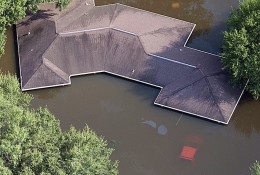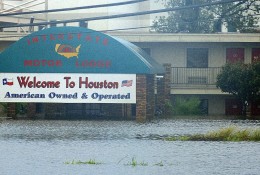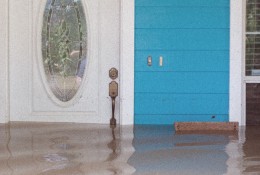The unprecedented 2017 storm dumped more than 50 inches of rain on the Houston area, but as rain events and flooding become the new normal, new research is needed to respond.
Urban Edge
Houston is still reckoning with the biggest lessons from Hurricane Harvey
When it hit five years ago this week, Hurricane Harvey was an unprecedented disaster: 68 people dead, 200,000 homes damaged or destroyed, a half-million cars wiped out, $125 billion in damage.

In ‘More City than Water,’ Houston tells its Hurricane Harvey story. Will we listen?
Flood survival stories are a Houston shibboleth, a test of membership. Make it through a devastating downpour, and you are one of us. And everyone who lived in the Houston area in August 2017 has a Hurricane Harvey story. For some, it was another entry in a collection of flood stories, depending on how long they lived here and where; for others, it was their first, a rude awakening to very real vulnerabilities.

After Hurricane Harvey, flood insurance created windfalls and fault lines for the middle class
Friendswood, a close-knit suburb southeast of Houston that routinely makes lists for being the “best place to raise a family,” also serves as a case study for how flaws in the federal approach to flood insurance and disaster recovery aid resulted in fractured outcomes even among similarly situated middle-class neighbors after Hurricane Harvey.

If it hopes to overcome future Harveys, Houston needs to double down on resilience and planning
A new book serves as a guide for how cities can best learn from one another to design systems and build ways to endure the worst climate shocks to come. This includes Houston’s experience—both for what to expect from a changing climate and how to respond. Its authors say Houston has done several things right, but they also worry that future disasters could outpace these efforts.

With new incentives, Harris County hopes to gain buy-in for buyouts
Climate change is propelling more extreme weather events, including more precipitation and flooding, which means the need for more strategies such as buyouts has never been more urgent. As a concept, buyouts are fairly straightforward: the government buys up properties to remove them out of harm’s way, reducing the risk of loss of life, the need for future flood repairs, insurance payouts and other costs.

Physical Address
Rice University
Kraft Hall
6100 Main Street, Suite 305
Houston, TX 77005-1892
